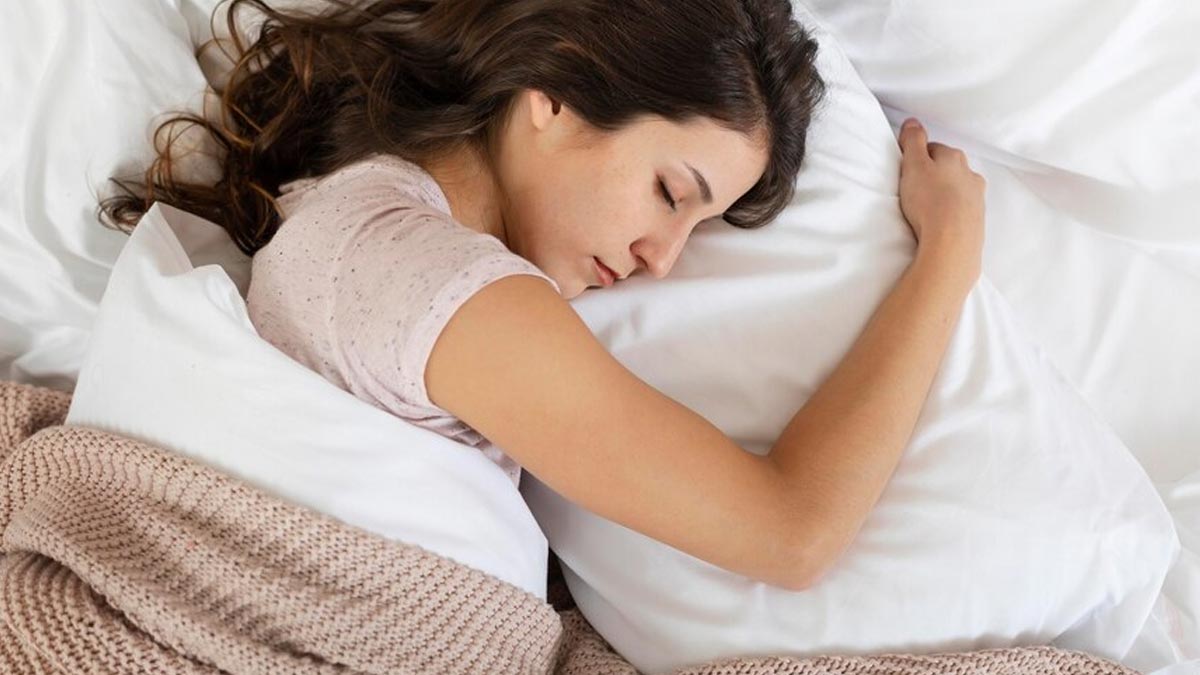
Wrinkles are a natural part of ageing, and there is no way to stop them from emerging. It usually occurs due to a decrease in collagen and elastin production in the skin and mostly appears on areas exposed to the sun and those subject to repeated facial expressions, such as smiling, frowning, and squinting.
Table of Content:-
However, taking care of your skin and avoiding factors that quicken facial ageing can help slow down the formation of wrinkles. Interestingly, some studies suggest that sleeping positions may also contribute to the formation of wrinkles, particularly those on the face. We asked Dr Shireen Furtado, Senior Consultant-Medical and Cosmetic Dermatology, Aster CMI Hospital, Bengaluru, to shed light on the same.
Also Read: Wrinkles And Other Signs Of Ageing: How To Delay Them
Sleeping Positions And Wrinkles

While there's limited direct evidence, certain sleeping positions may contribute to facial ageing and wrinkle formation due to prolonged pressure on the skin, said Dr Furtado.
For instance, sleeping on your side or on your stomach could cause creases and compression wrinkles over time, according to the doctor. This is attributed to the repeated pressure and compression on the facial skin, she explained.
As per a research article published in the Aesthetic Surgery Journal, these "sleep wrinkles" are different from wrinkles caused by facial expressions, and they appear in specific areas where the skin folds under pressure.
While treatments like Botox work for expression wrinkles, there's no direct solution for sleep wrinkles besides avoiding the pressure itself. The researchers therefore recommend special pillows designed to minimise facial contact during sleep, although getting used to them could take time.
Moreover, Dr Furtado recommended sleeping on your back to minimise wrinkles, as this position avoids facial compression. However, it may not be suitable for everyone due to other health concerns, like sleep apnoea.
Other Factors That Can Lead To Facial Ageing

According to Dr Furtado, several other factors can contribute to increased wrinkles during sleep. These include:
Sun Exposure: Prolonged exposure to the sun's harmful ultraviolet (UV) rays accelerates skin ageing and can lead to the development of wrinkles.
Smoking: Smoking damages collagen and elastin, essential proteins for maintaining skin elasticity, and increases the risk of wrinkles.
Poor Skincare: Neglecting a proper skincare routine, including inadequate moisturization, can leave the skin more susceptible to wrinkling.
Dehydration: Insufficient hydration can result in dry skin, accentuating the appearance of wrinkles.
Genetics: Genetic factors play a role in determining skin structure and susceptibility to ageing, influencing the development of wrinkles.
Also Read: Winter Maladies: 9 Ways To Tackle Skin Problems, Expert Suggests
Ways To Reduce Sleep-Related Wrinkle Formation

Here are some effective ways to reduce wrinkle formation during sleep:
- Use a silk or satin pillowcase to minimise friction and skin compression.
- Maintain a consistent skincare routine, including moisturising before bedtime.
- Stay hydrated to support skin elasticity.
- Consider investing in a quality mattress and pillows to promote better sleep positions.
- Protect your skin from the sun by using sunscreen.
- Avoid smoking
Conclusion
Proper sleep positions are crucial for overall health and well-being. This also includes minimising the risk of developing wrinkles, as certain positions can lead to compression of the facial skin and contribute to premature ageing. While sleeping on the side and stomach are said to be some of the worst positions to avoid facial wrinkles, sleeping on your back is often recommended to reduce pressure on the face and maintain skin elasticity. However, consult with your dermatologist if you see any premature wrinkle formation.
Also watch this video
How we keep this article up to date:
We work with experts and keep a close eye on the latest in health and wellness. Whenever there is a new research or helpful information, we update our articles with accurate and useful advice.
Current Version